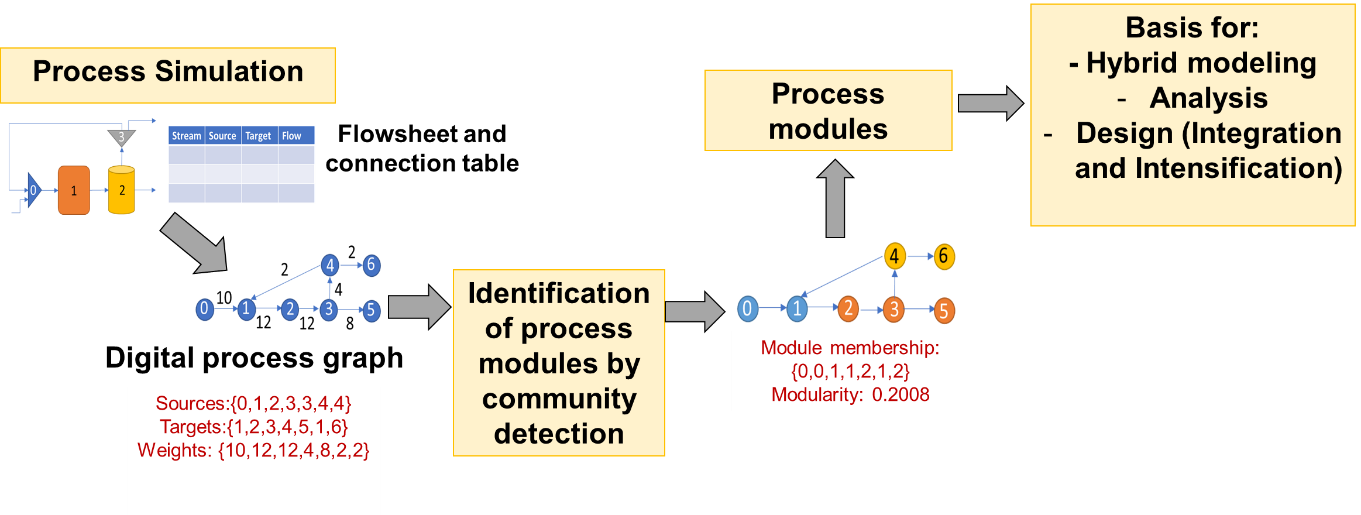(216h) Modeling Based on Modular Decomposition of a Process Graph and Implementation into a Bioenergy Process Analysis Tool
AIChE Annual Meeting
2023
2023 AIChE Annual Meeting
Computing and Systems Technology Division
Software Tools and Implementations for Process Systems Engineering
Tuesday, November 7, 2023 - 2:36pm to 2:54pm
The digital era of chemical engineering requires methods that support the modeling and analysis tools suitable to decompose complex systems into manageable components from conceptual design. This work presents examples on how the digitalization of chemical processes as graphs can facilitate their modeling and analysis. In a process graph, inputs, outputs and unit operations are represented as nodes and streams are edges which can be weighted using process variables such as flow rate. Once a process is represented as a graph, community detection algorithms can be applied to identify process modules that can then serve as a structure for model development. This approach based on modular decompositions helps to identify highly related unit operations in a flowsheet which can be analysed for insightful directions to improve a chemical process. The general methodology is shown in Figure 1. Modules would be containers of highly related unit operations and their interactions captured by module models. This also facilitates the development of machine learning models and hybrid modular modelling which capture process relationships among unit operations. This in turn can be used for faster and more insightful evaluation of processes alternatives and can facilitate the application of process integration and intensification principles. The potential of the approach is exemplified by presenting the Bioenergy Process Economic, Environmental, Safety and Socioeconomic Analysis Tool as a decision support platform which implements a modeling structure based on a modular decomposition of bioenergy processes, using the Julia programming language. In particular, the process modular structure is the basis for developing hybrid or surrogate models for simulation of bioenergy and biofuel production processes including bioethanol, biobutanol, biomass gasification and bio-jet fuel. A case study on a bio-jet fuel process will be used to illustrate the approach and advantages of the modelling approach including facilitation of artificial neural network model development and life cycle assessment (LCA) modelling for faster calculations.


